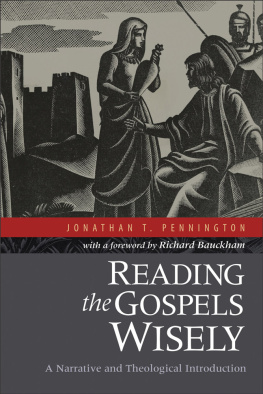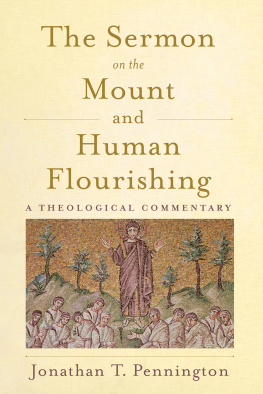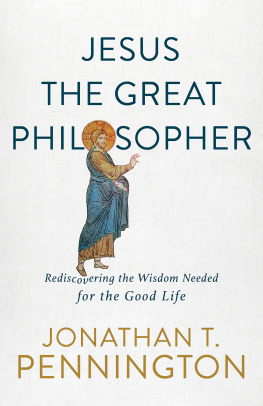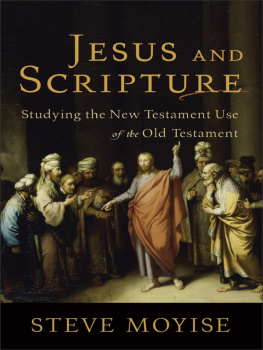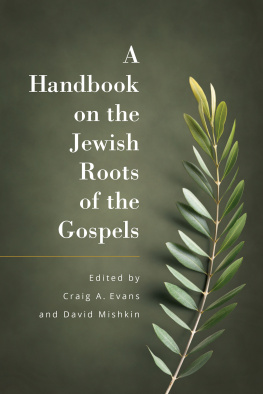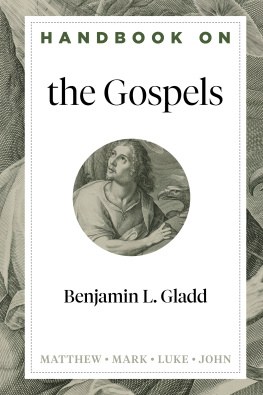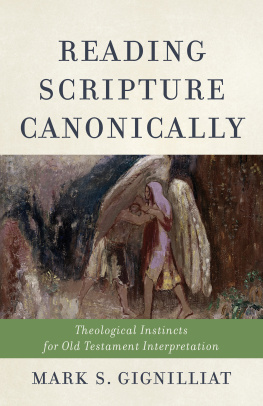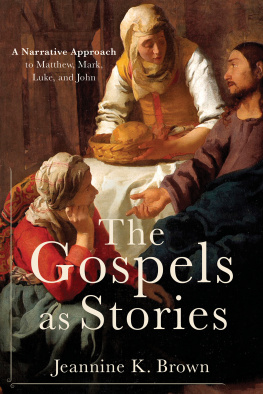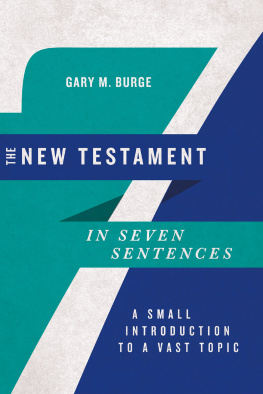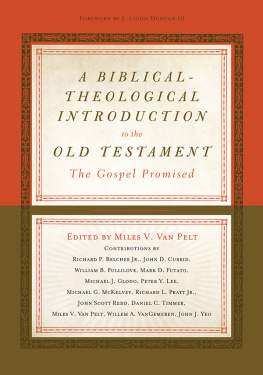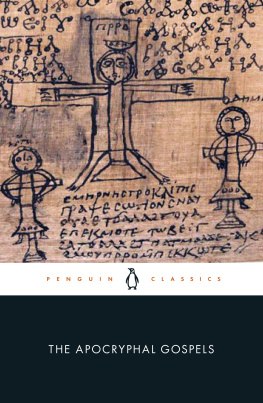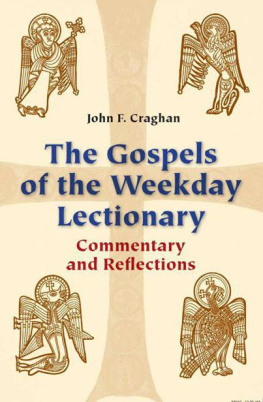
2012 by Jonathan T. Pennington
Published by Baker Academic
a division of Baker Publishing Group
P.O. Box 6287, Grand Rapids, MI 49516-6287
www.bakeracademic.com
Ebook edition created 2012
All rights reserved. No part of this publication may be reproduced, stored in a retrieval system, or transmitted in any form or by any meansfor example, electronic, photocopy, recordingwithout the prior written permission of the publisher. The only exception is brief quotations in printed reviews.
ISBN 978-1-4412-3870-2
Library of Congress Cataloging-in-Publication Data is on file at the Library of Congress, Washington, DC.
Scripture quotations are from the Revised Standard Version of the Bible, copyright 1952 [2nd edition, 1971] by the Division of Christian Education of the National Council of the Churches of Christ in the United States of America. Used by permission. All rights reserved.
Contents
Foreword by Richard Bauckham
Preface
Part 1 Clearing Ground, Digging Deep, and Laying a Good Foundation
1. What Are the Gospels? Defining Gospel
2. What Are the Gospels? Understanding the Gospel Genre
3. Why Do We Need the Gospels? (Or Why Saint Paul Is Not Enough)
4. The Joy and Angst of Having Four Gospels
5. Texts and History: The Testimony of the Fourfold Witness
6. Reading Holy Scripture Well: Three Avenues
7. Reading Holy Scripture Well: Intent, Meaning, and Posture
8. Foundations for Reading the Gospels Well
Part 2 Building the House through Wise Reading
9. Reading the Gospels as Stories: The Whatever Strikes Me (WSM) Hermeneutic versus Narrative Analysis
10. Reading the Gospels as Stories: Circles of Contextual Meaning
Part 3 Living in the Gospels House
11. Summing It All Up: Applying and Teaching the Gospels
12. The Gospels as the Archway of the Canon
Scripture Index
Author Index
Figures
Foreword
So much has been written about the Gospels that no one could ever read more than a fraction of it. But anyone who begins to read what scholars have been writing about the Gospels soon discovers that there are many different sorts of important questions one can ask about the Gospels and that most of them have received many different answers. It can be daunting and confusing.
Not so long ago nearly all Gospels scholars would have said, very confidently, that the Gospels are not biographies of Jesus. Now, however, many would say that is precisely what they are, though with the qualification that they are the sort of biography people wrote at that time. But does that make them reliable history, or are they more like legend or myth or novels or propaganda? A lot of the scholarly literature is engaged in the quest for the historical Jesus, attempting to get back behind the Gospels to what the historical Jesus was really like before the early Christians started the process of interpretation that gave us the Gospels. Refined tools of historical method have been developed for studying the Gospels in this way, but the tools and their use are debatable. Furthermore, the results of the quest are so varied and contradictory as to throw the feasibility of the whole enterprise into doubt.
Does any of this matter for Christian faith or for Christian theology? Those questions too have been debated. How are faith and history related? Some would say that the quest for the historical Jesus is necessary for faith and discipleship today; others would say that it is irrelevant or even dangerous. Should Christian faith and theology buy into the Enlightenment notion of history, as the quest has generally done, or question it? While much of Gospels scholarship has been concerned with historical questions, theological questions also loom large. Should we not, after all, be reading the Gospels primarily as Scripture, with the whole canon of Scripture as their principal context of meaning? This is how the church has usually read them, and there are those who now advocate strongly that we should return to the traditional ecclesial practices of reading the Gospels from which modern historical preoccupations have distracted us. And then there is hermeneutics, the science of interpreting texts, which has its own large literature, some of it philosophical and very technical. This in turn interacts with other questions about the Gospels and generates its own kinds of enquiries. Daunting and confusing?
But here is a book about these questions that is neither daunting nor confusing. Jonathan Pennington is familiar with all the questions, has read widely, and has thought hard about them. His concern is with helping Christians read the Gospels in a way that is faithful to the sort of texts they are. With this concern to guide him (and his readers) he is able to distill from the scholarly discussions what matters most for this task. He does so with admirable clarity and coherence, and, notably, he achieves clarity and coherence without being reductionist. He does not cast aside most of the Gospel texts in a minimalist search for the historical Jesus, but nor does he leave history aside in favor of canon or theology alone. He invites us to read the four Gospels as history and theologyeach as a narrative whole in its own right, as the climax of the great scriptural metanarrative, and as the keystone in the archway of the whole canon of Scripture. What is perhaps most distinctive in his approach is his concern for Christian virtue and discipleship. The sort of literature the Gospels are is not sufficiently defined by saying that they are historical and theological. They are also literature that aims to make a difference to the lives of their readers. They are virtue-forming. They call their readers to following Jesus in a way that is transformative.
I have been impressed by Jonathan Penningtons work since he worked on a PhD under my supervision at St. Andrews. I am very happy to commend this book. Reading the Gospels wisely is one of the most important things Christians can do, and I hope this book will help many to do just that.
Richard Bauckham
Ridley Hall, Cambridge
Preface
Every one then who hears these words of mine and does them will be like a wise man who built his house on the rock. And the rain fell, and the floods came, and the winds blew and beat on that house, but it did not fall, because it had been founded on the rock. And every one who hears these words of mine and does not do them will be like a foolish man who built his house on the sand; and the rain fell, and the floods came, and the winds blew and beat against that house, and it fell; and great was the fall of it.
Matthew 7:2427
The Gospel of Matthew has always stood at the head of the New Testament canon, and its famous Sermon on the Mount has always been considered paradigmatic for understanding both Jesuss teachings and earliest Christianity. It is fitting for us then to listen closely to the climactic conclusion to the sermon in the words above. In this final, parabolic image, Jesus describes his teaching as a fork in the road that divides his hearers into two distinct groups: the wise and the foolish. There is no middle ground.
The wise are distinguished from the foolish in that they not only hear Jesuss teachings but also then act upon them ; that is, they order their lives according to his ways and wisdom. The content of Jesuss teaching matters, but here at the end of his sermon the emphasis is on responsive hearing. Wise people must hear correctly what Jesus teaches, but they must also respond to this grace with faith and faithful living.

